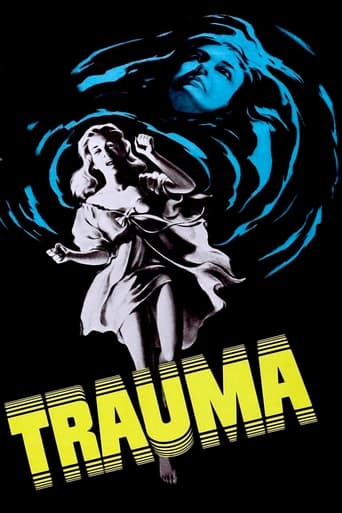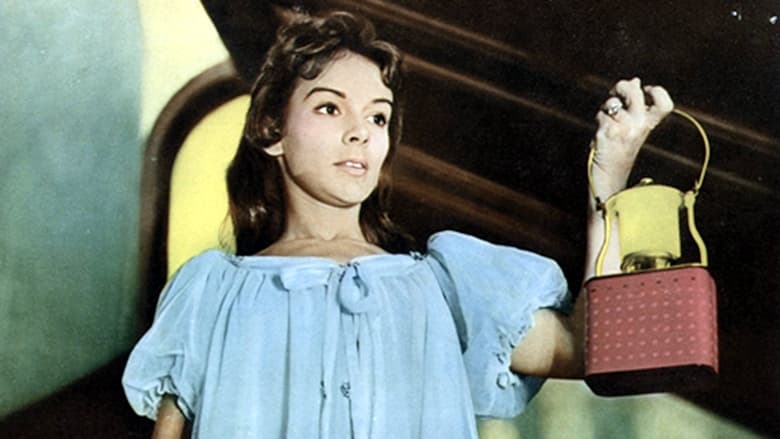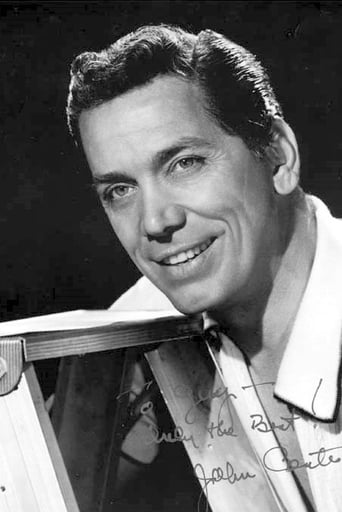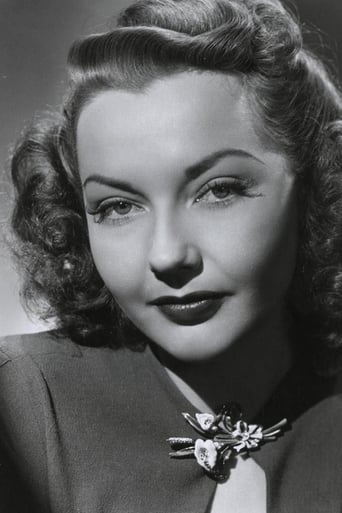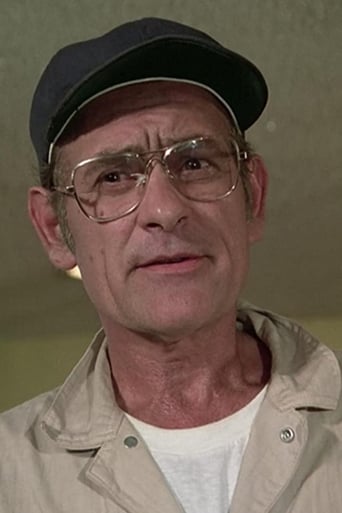Trauma (1962)
Eight years after her aunt Helen Garrison is killed, newlywed niece Emmaline and husband Warren return to the home where Helen died, where Emmaline tries to recall events from that fateful night that her mind has blacked out.
Watch Trailer
Cast
Reviews
Good , But It Is Overrated By Some
The storyline feels a little thin and moth-eaten in parts but this sequel is plenty of fun.
While it doesn't offer any answers, it both thrills and makes you think.
It is an exhilarating, distressing, funny and profound film, with one of the more memorable film scores in years,
To enjoy "Trauma", you have to turn your brain off and just watch the film. After all, so much of the plot really makes no sense. Still, given the limitations in the script and with the budget, it's not a bad little psychological thriller.This film is unusual because the opening titles appear 15 minutes into the film! This is when Emmaline's aunt is murdered...deliberately drowned by someone whose identity is unknown through most of the film. However, and this is a dumb twist, Emmaline might know but she's got complete amnesia of this as well as her life before the murder! It's an overused and difficult to believe concept--and it's not made any easier to accept given the whole hidden mentally challenged and insane brother angle that appears later in the movie!But the folks acting in the film do a nice job, the film has a nice, tense atmosphere and the film is a decent time-passer given that you can just look past everything. Just don't think too much...otherwise it will probably be a bit of a waste of your time.
I don't see any way in which this could be compared to Hitchcock's "Psycho" except that one followed the other closely. "Trauma" is really burdened by its low budget, most of which may have been spent on that brand new Corvette. The production values affect both the script and the performance.Even in the first two or three minutes, when teen-aged Lorrie Richards as Emmaline, is talking with a caring friend, Carla, Renee Mason's acting as Carla is so poor it made me wince. I don't know who you are, reading this. Or WHY you're reading it, for that matter. But if you are some grizzled old wino in an alley, you could be dragged into a studio and give at least as good a performance as Renee Mason. I've seen better acting on the stage of a high school in Tonopah, Nevada. But she's pretty, petite, and has a saucy figure.I don't mean to be too harsh on the poor girl. She doesn't stand out in any particulars. Nobody really delivers the goods. A middle-aged Lynn Bari does her best with the role of Emmaline's rich aunt, but she never did bring much to the party and recites her lines as if in a classroom, but she's a seasoned pro and adds an occasional odd and interesting twist to her delivery of a line. The other chief character, John Conte, has the magnetic appeal of a hard boiled egg.But all of them get some good lines. The writing is better than any other element of the film. When we first see John Conte, he chats with the young Emmaline and mispronounces her name. Even after she corrects him, he smiles genially and mispronounces it again. There's an edgy feel to the scene and the edge is not in the performances but in the dialog.Not to say the twisted plot is in any way original. "Psycho" built up its suspense in ambiguous ways -- Janet Leigh, filled with guilt, yet still smiling with satisfaction as she imagines how her boss will react to her treachery -- until the crashing mid-film crisis that turned the story on its head. There's no danger of anything being gradually built up here. In the first five minutes. Emmaline is put through the cliché of a woman alone in the woods, hearing a strange sound, and then someone leaping into the frame, only to have the leaper turn out to be the family handyman.The plot has been described elsewhere. Briefly, a man marries a woman for her money and when she dies everyone suspects him, possibly because he looks and sounds like a snake. Ah -- but the REAL plot involves forbidden love, an idiot child, hidden rooms, and amnesia.The musical score is by Buddy Colette. He was a talented musician who was part of the West Coast jazz movement, distinguished by its odd arrangements and use of instruments unfamiliar to jazz. Colette played with the Chico Jones group, for instance, that used a jazz cello. The style doesn't belong behind a movie. We hear weird instruments, a bassoon, and I think a harmonium, and, who knows?, sacbuts, virginals, rauschpfeife, and spoons.All in all, I found it dull. The story doesn't really fit a California ranch-style house. It belongs in a ghoul-haunted mansion.
Severely limited by lack of budget, perhaps, accounts for a story with very few thrills and a very odd kind of "hep-cat" music score that only rarely appears and then usually to be distracting. It's basically a super low budget modern day JANE ERYE. But there is just almost no sense of danger to the film and though its ending isn't what you might expect it doesn't really all work out after it's over and you look back and the few things that really happened. The film is never stupid and the performances are good--seems like the lead girl deserved to make more films after this. But saying it isn't junk doesn't make it a jewel and most of what happens feels like filler, well done filler all considered, but when it's all said and done not much has really happened. It's pretty plane that the murder victim at the start is blinking right after death, but the rest of the film is gaff free but excitement free too. The lead character is just never really in any urgent danger so the mystery doesn't demand it get solved or ever feel like it's building to something awful. Various scenes cutting away from the girl's story to the architect's office deflate things more though the mild comic relief does work and the characters are believable, but so what when you know nothing threatening is anywhere nearby. There aren't many suspense of violent set pieces and those aren't very well done and end very quickly.MILD SPOILERS BELOW I mean only one person dies in the whole film and scenes with "the killer" come few and far between and about the most threatening thing the killer does is knock over a painting. They usually only show the killers hand but some of these scenes are almost comical. The whole structure of the film had you sure you know what's going on to the point of saying: "Oh come on let's get one with it." It does have a surprise in store at the end but that can't redeem the too too long a time trying to set you up for the ending.
TRAUMA (1962), a quite exquisite and scary Gothic thriller, is as good as some claim; it is one of those almost secret jewels of the genre cinema, a true lesson of craft. The main ingredients of the Gothic (insanity, sexuality, architecture, family secrets) are intelligently used in a shocker directed with good sense.The sexual overtones will, I presume, win the audiences' hearts. And in a couple of scenes there's quite a lot of see—through, which kind of places TRAUMA not so far from the genuine _sexploitation. Scary, sharp, intelligent, ably paced, played with grit and gusto, TRAUMA shows how a shocker made on a tiny budget can successfully avoid the ridiculousness and camp.The few resemblances with Argento's TRAUMA are that both flicks are Gothic, both have a young woman in the lead, both, as the title promises, speak about psychic damage, both use some sexuality to conquer the viewers' hearts . All these resemblances derive naturally from the common subject—when you write about a trauma, it befits a shocker to make it a psychic trauma, hence make the traumatized a woman, young to seem both appealing and vulnerable, therefore conjure her sexuality, and all these describe pretty accurately the Gothic's gist.On the other hand, the differences with a 18th century Gothic novel are obvious; in aesthetic terms now, the well—made Gothic flicks, like TRAUMA, like DEMENTIA 13, seem a lot more commonsensical than the regular old Gothic novel with its exaggerations and brouhaha and useless accessories.Historically speaking, the Gothic revival in the cinema doesn't prove the imperishable nature of the original, 18th—19th centuries literary Gothic, but, on the contrary, the fact that everything unnecessary and superfluous and exaggerated was naturally discarded.
